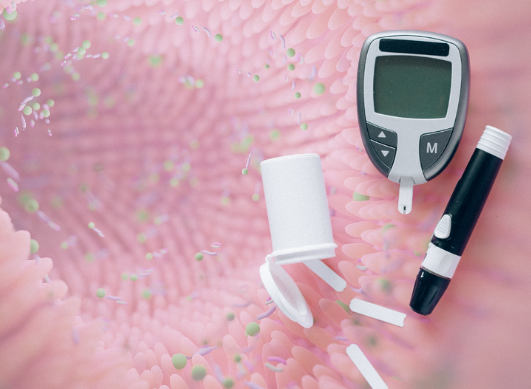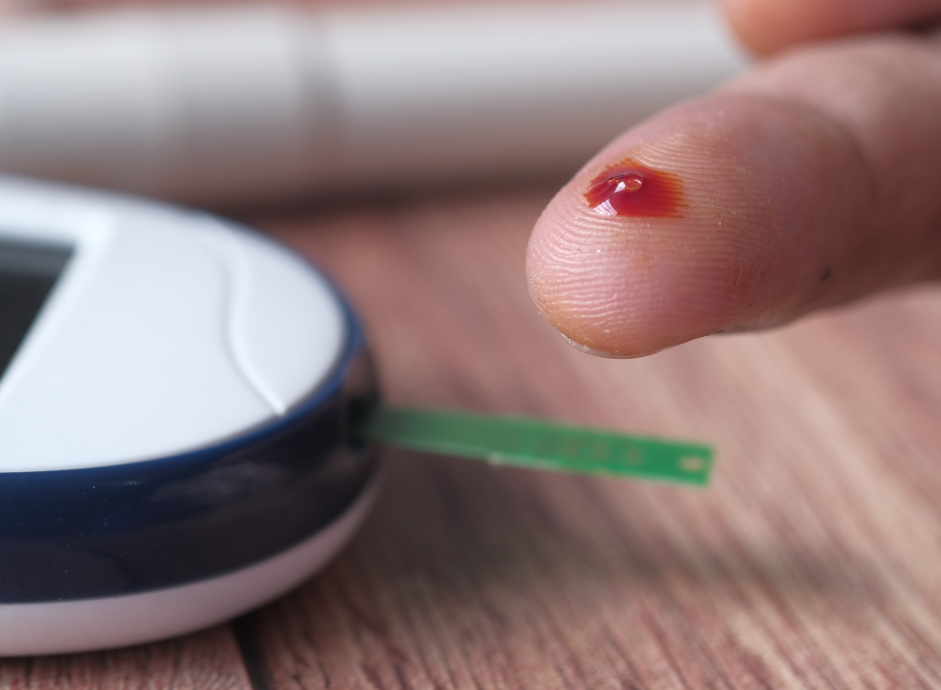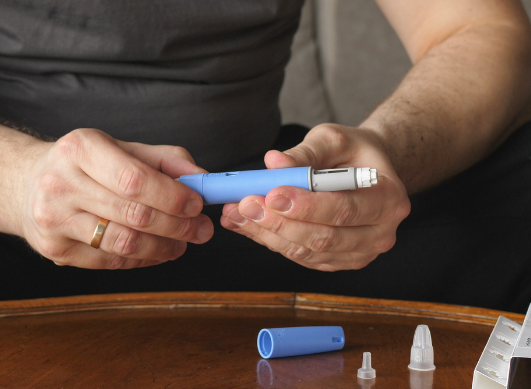- Home
- Forums
- Diabetes (Type 2) Forum
- Treatments for type 2 diabetes
- What are some natural ways to improve insulin sensitivity
Patients Diabetes (Type 2)
What are some natural ways to improve insulin sensitivity
- 36 views
- 1 support
- 3 comments
All comments

Unregistered member
good article , thank you

Lee__R
Community managerGood advisor
![]()
Lee__R
Community manager
Last activity on 04/03/2020 at 5:04 PM
Joined in 2018
1,336 comments posted | 62 in the Diabetes (Type 2) Forum
2 of their responses were helpful to members
Rewards
-
Good Advisor
-
Contributor
-
Messenger
-
Explorer
-
Friend
-
Top chef
Hi @donnad, glad you found the article beneficial. Have you tried any of these natural ways? or looking to try any of them?
![]()
jaks134
Good advisor
![]()
jaks134
Last activity on 01/30/2023 at 3:46 PM
Joined in 2018
37 comments posted | 33 in the Diabetes (Type 2) Forum
1 of their responses was helpful to members
Rewards
-
Good Advisor
-
Contributor
-
Messenger
-
Explorer
I think one of the most overlooked methods is sleep; our bodies are already "out of wack" on its ability to regulate our BG levels; thus, we can throw it more off if we fail to adequately regulate our sleep.
Further, I try to regulate it through exercise since exercise increases our bodies ability to utilize the glucose, but it is important to regulate how exercise affects you because you can be thrown in to hypo.
Finally, diet is very important! There are many things we can do when it comes to our diet to improve our body's BG sensitivity.
Give your opinion
Survey
Survey
Members are also commenting on...
Articles to discover...
Medication fact sheets - patient opinions...
Subscribe
You wish to be notified of new comments
You have been subscribed









Lee__R
Community managerGood advisor
Lee__R
Community manager
Last activity on 04/03/2020 at 5:04 PM
Joined in 2018
1,336 comments posted | 62 in the Diabetes (Type 2) Forum
2 of their responses were helpful to members
Rewards
Good Advisor
Contributor
Messenger
Explorer
Friend
Top chef
Insulin sensitivity refers to how sensitive the body's cells are in response to insulin. Doctors generally consider a high insulin sensitivity to be healthy. Some lifestyle and dietary changes may help improve this sensitivity.
Insulin is a hormone that helps control the amount of sugar, or glucose, in the blood. The body's cells respond to insulin by absorbing sugar from the blood.
Low insulin sensitivity is known as insulin resistance. This can cause blood sugar levels to become too high and may lead to type 2 diabetes.
Insulin sensitivity varies between people and can change according to various lifestyle and dietary factors. Improving insulin sensitivity may benefit people who have or are at risk of type 2 diabetes.
In this article, we look at lifestyle and dietary factors that may help a person improve their insulin sensitivity naturally.
Lifestyle
People who wish to increase their insulin sensitivity can try making the following lifestyle changes:
Getting More Exercise
Getting more exercise may be one way to improve insulin sensitivity.
In a 2012 study, 55 healthy adults participated in a 16-week exercise program. The researchers found an association between increased physical activity levels and improved insulin sensitivity. This result was dose-dependent, meaning that the more the participants exercised, the more their insulin sensitivity improved.
Combining Different Exercises
The findings of a 2013 review suggest that certain types of exercise may increase insulin sensitivity more than others. The authors found that a combination of aerobic exercise and strength training was particularly effective for people both with and without diabetes. Based on their findings, the authors recommended that:
+ People without diabetes should do at least 30 minutes of exercise five times a week. This exercise should include high-intensity aerobic exercise three times a week and strength training in all major muscle groups twice a week.
+ People with type 2 diabetes should do at least 30 minutes of exercise five times a week. They should perform long-duration, moderate-intensity aerobic exercise three times a week and high-repetition resistance training in all major muscle groups twice a week.
+ People with type 2 diabetes and limited mobility should do as much exercise as they can manage. They should aim to include low-intensity aerobic exercise combined with low-intensity resistance training in all major muscle groups three times a week.
Getting More Sleep
Getting more sleep may also improve a person's insulin sensitivity.
In a 2015 study, 16 healthy people who were not sleeping for long enough extended their sleep by 1 hour per day for 6 weeks. This extra sleep led to increased insulin sensitivity.
Diet
Some research suggests that making certain dietary changes could increase insulin sensitivity. These changes include:
Fewer carbohydrates, More Unsaturated Fats
Recent research suggests that replacing carbohydrates with unsaturated fats may improve insulin sensitivity in some people.
A 2012 study investigated the effects of different diets on insulin sensitivity in adults with high blood pressure, which is a risk factor for type 2 diabetes. The researchers concluded that eating a diet low in carbohydrates and high in unsaturated fats for 6 weeks may improve insulin sensitivity.
The study also suggested that this diet was more effective at improving insulin sensitivity than a diet high in carbohydrates or a diet that replaces some carbohydrates with proteins.
A 2016 systematic review of 102 studies concluded that replacing carbohydrate and saturated fat with polyunsaturated fat may improve the body's blood sugar regulation.
More Soluble Fiber
Soluble fiber is a type of dietary fiber that comes from plants. Although this fiber is a type of carbohydrate, the body cannot break it down properly. As a result, it does not contribute to spikes in blood glucose levels.
Soluble fiber also delays gastric emptying, which is the time it takes for a meal to leave the stomach and enter the small intestine. A small 2014 study suggests that this delay may help lower blood glucose levels after meals in people with type 2 diabetes.
Another study suggests that eating more soluble fiber may help reduce insulin resistance in healthy women.
Intermittent Fasting
Intermittent fasting is a type of diet that focuses on the timing of eating rather than the specific foods in the diet. It may improve insulin sensitivity and reduce the risk of type 2 diabetes for certain people.
A 2014 review investigated the effects of two types of intermittent fasting in overweight and obese adults:
+ Restricting calorie intake for 1–3 days per week and eating freely on the remaining days.
+ Alternating between fast days and feed days. People reduce their regular calorie intake by 75 percent on fast days and do not restrict their diet on feed days.
As with a daily calorie-restricted diet, the researchers found that both types of intermittent fasting reduced insulin resistance. However, this type of eating had no meaningful effect on blood glucose levels. They concluded that more research is necessary.
Dietary Supplements
In addition to changing the foods in their diet, people looking to increase their insulin sensitivity may benefit from taking some dietary supplements. According to research, the following supplements could reduce insulin resistance:
Probiotics and Omega-3 Fatty Acids
Taking probiotics or omega-3 fatty acid supplements may improve insulin sensitivity in overweight people.
A 2014 clinical trial investigated the effects of both omega-3 fatty acids and probiotics on insulin sensitivity in 60 adults who were overweight but otherwise healthy.
The researchers reported that taking either a probiotic or omega-3 supplement for 6 weeks led to significant improvements in insulin sensitivity compared to a placebo. The increase in insulin sensitivity was greater still in people who took both supplements together.
Magnesium
Magnesium supplements may also be beneficial for people wanting to improve their insulin sensitivity.
A 2016 systematic review found that taking magnesium supplements for more than 4 months significantly improved insulin resistance in people with and without diabetes.
Resveratrol
Resveratrol is a natural compound that occurs in the skin of red grapes. It is also available as a dietary supplement.
A 2014 meta-analysis of 11 studies found that taking resveratrol supplements significantly improved glucose control and insulin sensitivity in people with diabetes. However, the researchers did not observe the same effects in people without diabetes and concluded that there is a need for more research on the effects of resveratrol supplementation in humans.
Takeaway
Low insulin sensitivity is a risk factor for developing type 2 diabetes. Exercising well, having enough sleep, and eating a healthful diet high in unsaturated fats and soluble fiber may help improve insulin sensitivity in people with and without diabetes.
Certain dietary supplements may also be beneficial. Many of these supplements are available to purchase online:
+ probiotic supplements.
+ omega-3 supplements.
+ magnesium supplements.
+ resveratrol supplements.
Medical News Today